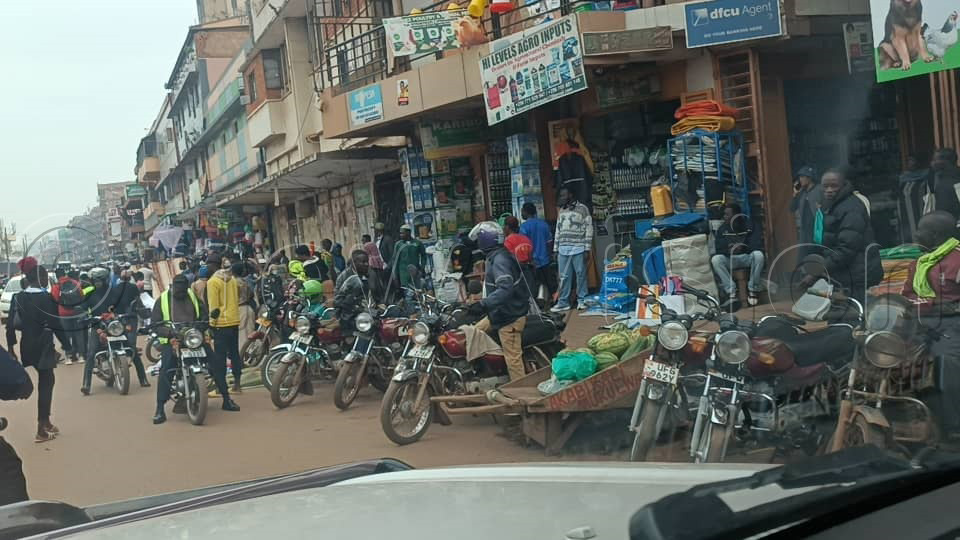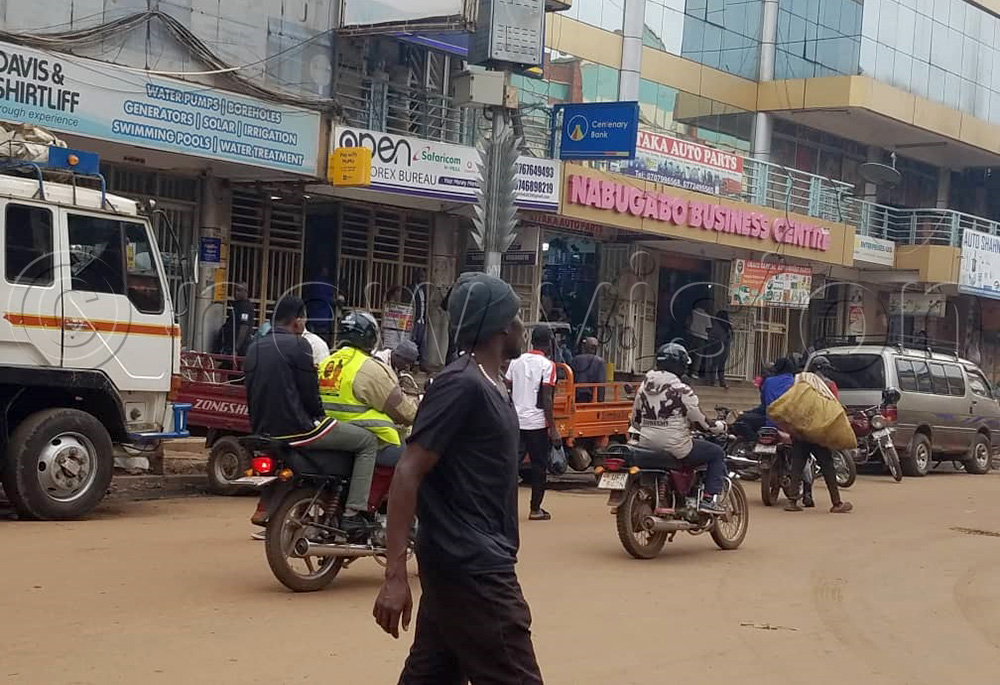Traders divided on day one of tax-related strike
The division was evident on Tuesday morning, the first day of the protest, when some traders closed their shops in support of the strike, while others kept their businesses open and continued operating as usual.
Around the Nabugabo area, while some shops were closed, others remained open amidst the ongoing strike. (Photo by Moses Kigongo)
__________________
Kampala city traders are divided over a planned strike intended to express dissatisfaction with tax-related policies. The strike, which was expected to see widespread shop closures in the city centre on Tuesday, instead revealed a split among the business community.
The division was evident on Tuesday morning, the first day of the protest, when some traders closed their shops in support of the strike, while others kept their businesses open and continued operating as usual.
The strike was called by the Kampala City Traders’ Association (KACITA), which urged all members of the business community to shut down operations in protest of what it described as unfair tax practices by the Uganda Revenue Authority (URA). Chief among their concerns is the continued use of a per-kilogram tax assessment system on textile imports.
At Container village, shops remained opened. (Photo by Moses Kigongo)
“This system is not fair. We import these materials based on quality and appearance, not weight,” said Issa Sekitto, the acting chairperson of KACITA. “When you tax us based on weight, it distorts our pricing and affects our profits.”
In addition to the per-kilo taxation system, KACITA also raised concerns about high taxes on textile goods, including a 2.5% levy on jeans and related items, and the threshold for Value Added Tax (VAT) registration.
The other reason includes mandatory use of the Electronic Fiscal Receipting and Invoicing Solution (EFRIS), which many traders believe adds undue complexity and cost to their operations.
In light of these issues, KACITA called on all traders, particularly those operating in arcades and busy commercial areas such as Kikuubo Business Centre, Qualicel Bus Terminal, and Nabugabo Street, to close shop in solidarity.
While several buildings heeded the call, including Gazaland, Park Nkadde Mall, Mutaasa Kafeero Plaza, Qualicel, Totala Building, and some shops in City Base Plaza, others, especially along Kampala Road and in the Container Village area, chose to stay open.

Around the Nabugabo area, while some shops were closed, others remained open amidst the ongoing strike. (Photo by Moses Kigongo)
Traders who remained open cited the need to earn a daily income to cover operational costs, especially rent. Some expressed frustration with KACITA, accusing the leadership of making calls to strike while negotiating personal deals with government officials behind closed doors.
“We have respected the calls to strike before,” said one trader along Kampala Road. “But each time, our leaders collect money from the government to end the strike, and we are left struggling to catch up on lost income and rent.”
As a result, some traders say they have resolved to keep operating even as negotiations between their leaders and the government continue.